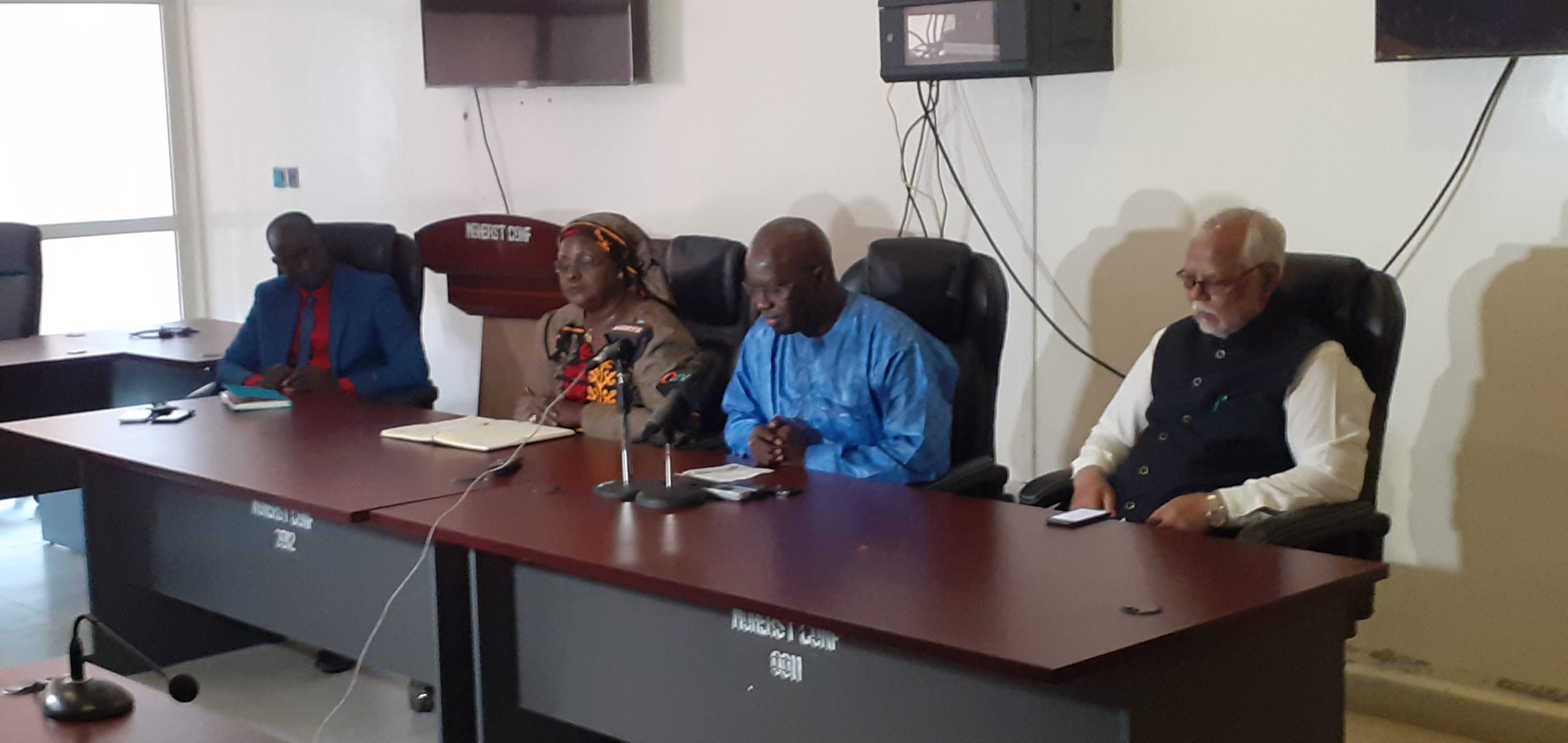By: Dr. Ousman Gajigo
Adama Barrow and his government need a basic lesson on what constitutes the right kind of foreign investment. The need for such a lesson was brought home clearly in a recent BBC report on the Golden Lead fishmeal factory investment in Gunjur. I highly recommend readers click through the link and read the article for themselves to see not only the serious environmental damage caused by the company but also the lack of seriousness with which officials are handling the situation(https://www.bbc.com/news/world-africa-65204179).
Omar Gibba, the Permanent Secretary at the Ministry of Fisheries was highly featured in the article, though he was misidentified as the Minister of Fisheries. In any well-functioning government where the advancement of the country is the paramount goal, Mr. Gibba would now be in the middle of an apology tour before the nation or offering his resignation. But that is not the government we have at the moment. Indeed, any notion that Mr. Gibba is competent to hold the position he currently occupies or public-interest driven should fly out the window given the gems he uttered in that article.
The article highlights a well-known Chinese company, Golden Lead, that engages in manufacturing fish oil and fishmeal for export. It has been well-documented that this company has been criminally negligent in its disposal of waste and has done untold damage to the surrounding environment. Indeed, countless videos are floating on social media of the environmental damage being done to Gunjur and the surrounding coastlines. It is also this very company that bribed a former Permanent Secretary of the Ministry of Fishery (Bamba Banja), which was uncovered by the Malagen newspaper. The former Permanent Secretary was found guilty and yet the company faced no sanction. Malagen’s investigations revealed that the firm’s dealings with various ministries were mired in corruption and the implicated officials went higher than Mr. Banja’s permanent secretary position but apparently, the-then Minister of Fisheries (James Gomez) was too well connected to be prosecuted.
As the top-level civil servant at the Ministry, Mr. Gibba had this to say about the waste that is generated by Golden Lead: “Golden Lead has found a market where they can export the waste in liquid form. To where I don’t know.” The quotation from above reveals a senior government official showing no concern whatsoever about an important aspect of his work. If a company with a documented history of improper waste disposal claims that they have now found a new site for their waste disposal, one would think that this would not represent a minor detail to the top-ranking civil servant in the relevant ministry. But what we have instead is a blithe and unembarrassed expression of ignorance.
Mr. Gibba went on to claim that there has been no over-fishing. Anyone responsible for a Gambian household knows that the price of fish has skyrocketed and one of the main factors of that is the overfishing in our coastal waters. The kind of fishing vessels used by the Chinese companies are quite different from the canoes used by the local fishermen and it does not take much imagination to deduce that fish stock would be significantly depleted by such higher capacity vessels, especially those that do not observe most of our existing regulations that are meant to ensure sustainable fishing.
Another example of abdication of his responsibility is Permanent Secretary Gibba having no clue as to the quantity of fish being harvested by the company. This is nothing but a professional dereliction of duty. And it is not just mere ignorance and most likely active refusal to access information lest it forces one to confront an uncomfortable reality. After all, one thing that is not in doubt is that precise and complete records of fish catches are kept by the company. One would have thought that access to such a record would have been one of the initial requirements to ensure that this foreign investor is properly regulated.
To remove all doubts about his unsuitability for the position, Mr. Gibba has this to say about all the social and environmental violations caused by Golden Lead: “…In any investment, there have to be pros and cons. It makes society interesting.” Apparently, instead of being concerned with the damaging social and economic effects of a poorly regulated and corrupting investor for the country, Mr. Gibba thinks it is “interesting” that we are having this discussion. I shudder to think what else Mr. Gibba finds interesting.
What the depressing BBC article reveals quite clearly to all Gambians is that senior officials in that particular ministry have at best a superficial understanding of the importance of foreign direct investment. It also shows that cabinet reshuffles make almost no difference when the fundamental problem lies with the head of state. After all, the Ministry of Fisheries under Minister Drammeh continues to deal with Golden Lead the same way as it did under Minister Gomez.
It is true that the Gambia truly needs foreign investors if we want to develop economically. But not every single foreigner with dollars would automatically result in economic development. First, the investor must be engaged in lawful and economically productive activities. The investor must adhere to the laws of the land. Beyond that basic consideration, there must be other standards that need to be adhered to especially when there are issues of ecological or environmental damages to be avoided or mitigated.
It is not enough to pay lip service to laws and regulations that safeguard the interest of the nation. Public officials need to understand why those laws and regulations are needed, the need to have them in place, the assurance that they are fit for purpose and to enforce them. Furthermore, it is critically important public officials overseeing the relevant sectors are guided principally by public interest rather than personal enrichment. This would ensure that appropriate national frameworks are in place to attract the right kind of foreign investors.
When the above is in place, the country would be in a position to receive the right kind of investors whose investments would result in economic development. It would also mean that any community in which an investment is located sees clear net positive results from it. Of course, it is a reality that most economic activities would have some adverse environmental effects. But authorities need to ensure that these are minimized as much as possible, mitigated where feasible, and must be small relative to the benefit they bring to society at large. There is nothing automatic or inevitable about the process. It requires active management by authorities, not the flippant dismissal done by Mr. Gibba.
It is quite clear that the officials overseeing the fisheries industries have allowed themselves to be corrupted by these firms. Golden Lead and the other firms have shown no respect for our local laws and regulations because many of the public officials they deal with are motivated by personal enrichment rather than public interest, as one of the firm’s foreign workers made quite clear during the Malagen’s reporting. While the firm is busy damaging our environment and reaping profits, the only local beneficiaries of this sorry state of affairs are a few corrupt individuals.
This is not the kind of foreign investment that leads to development. Foreign direct investment can lead to development because it brings in needed capital, and create employment opportunities, new technologies, and standards. For those features to bring an uplift to the country, it must occur within a setting where laws and regulations are in place and enforced, and public officials discharge their duties. This is sadly not the reality in The Gambia today.




